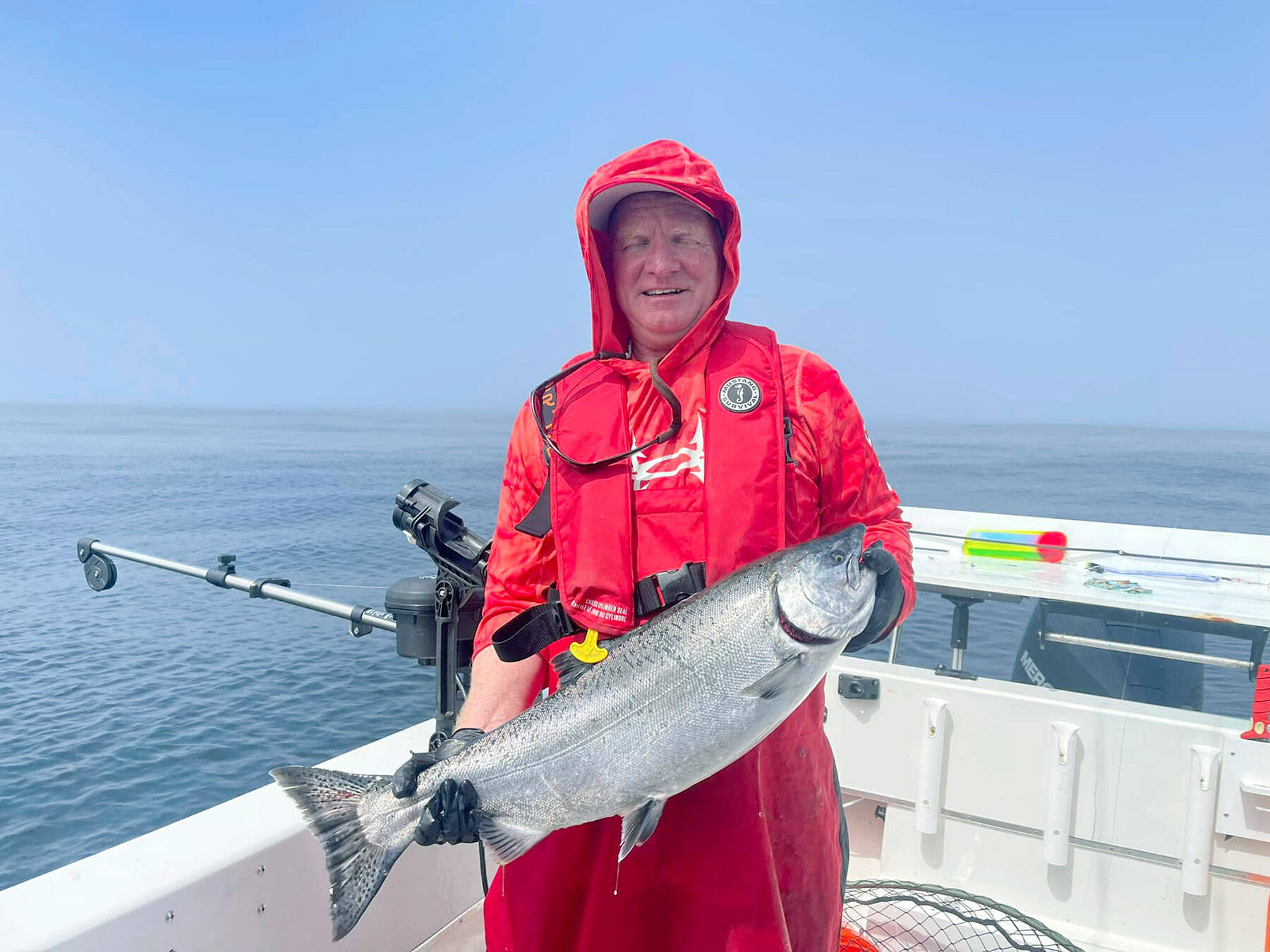White or ivory, whatever color you prefer to call them, the flesh of these chinook have become known as some of the best-tasting, best-smoking meat of all salmon species.
These fish can be found on occasion off of Neah Bay or in the Strait of Juan de Fuca heading to British Columbia’s Fraser River.
The Alaskan Department of Fish and Game said white kings range from the Fraser north to the Chilkat River in Southeast Alaska with estimates of about 5 percent of the king population carrying the recessive genetic trait that produces white flesh.
However, there are river systems where upwards of 30 percent of fish have the white flesh trait, and some Fraser watershed tributaries can produce upwards of 100 percent white chinook.
Why do these kings have white meat? It’s a recessive genetic trait characterized by the inability to break down carotenoids (pigments) in their diet of shrimp, krill and crabs.
These crustaceans are rich in astaxanthin, a carotenoid found in most marine life. White kings don’t have the genetic ability to break down their food and store the red-orange carotene in their muscle cells. The marbled flesh color sometimes found in king comes from their limited ability to metabolize carotene, causing the flesh to take on a marbled look. Often, this marbled flesh is more reddish towards the spine and whiter near the belly.
Break out the Punett squares: the trait that keeps these fish from taking on the red pigment is passed on or inherited from the adult spawners to their offspring. The ability to metabolize carotenoids is a dominant trait; therefore the majority of kings have red flesh.
Consider yourself lucky if you reel one up. These white kings are considered a delicacy, although you don’t prepare them any differently than red kings.
Hatchery coho in Area 9
Chinook retention ended at midnight in Marine Area 9 (Admiralty Inlet) as state fisheries managers determined anglers were nearing the area’s 4,700-chinook catch quota.
Anglers were estimated to have snapped up 87 percent (4,101) of the hatchery chinook harvest quota through Wednesday.
“While closing retention early is never what we want, we did see three consecutive weekends of steady effort and good fishing in Area 9,” said Kirsten Simonsen, Puget Sound Recreational salmon biologist for the Department of Fish and Wildlife. “Suspending Chinook retention now will help us avoid changes to the scheduled coho season, which is already promising to be good, based on early reports.”
Chinook retention fishing was open in Marine Area 9 for a total of 14 days since the season began on July 14. Marine Area 9 will remain open for a hatchery coho only fishery — release all Chinook — through Sept. 25. The daily limit is two with no minimum size limit for hatchery-marked coho. Release all chinook, chum and wild coho.
Halibut reopens
Halibut will reopen off Neah Bay and La Push (Marine Areas 3 and 4) on Thursday and will be open Thursday through Monday through Labor Day.
Beginning Sept. 6, Neah Bay and La Push will open every day for halibut five days per week, Thursday through Monday. Starting Sept. 6, Neah Bay and La Push will be open seven days per week.
Puget Sound Marine Areas 5-10 also will reopen on Thursday. These areas will be open seven days per week through Sept. 30 or if the quota total is reached.
Halibut planning
Before all the fun can resume, anglers are invited to help Fish and Wildlife plan for the 2023 halibut season during Zoom sessions on Tuesday and again Oct. 4.
At Tuesday’s meeting, state halibut managers will review preliminary 2022 season data and work with stakeholders to develop a range of preliminary options focused on general concepts, such as ways to extend the season length and maximize fishing opportunity.
To register for Tuesday’s meeting, visit https://tinyurl.com/PDN-Halibut23. The meeting ID is 810 7195 1548. To join by phone, call 1-253-215-8782.
________
Sports reporter/columnist Michael Carman can be contacted at mcarman@ peninsuladailynews.com.

